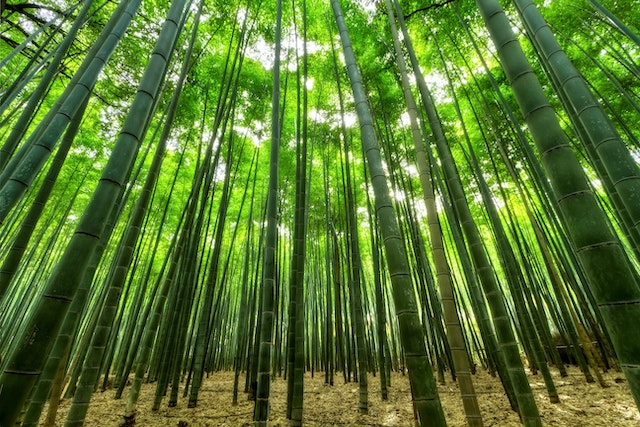Does bamboo really need fertilizer?
No, bamboo does not need fertilizer. In fact, too much fertilizer can actually harm bamboo plants. Bamboo is a very efficient plant and uses nutrients from the soil to grow quickly. If you fertilize bamboo, you may end up with leggy, weak plants that are more susceptible to disease and pests.
When should you fertilize bamboo?
Bamboo should be fertilized in the spring and summer months. Apply a balanced fertilizer to the soil around the bamboo, being careful not to get any on the leaves. Fertilize every four to six weeks during the growing season.
What do you feed bamboo with?
Bamboo is a type of grass, and like other grasses, it does best in soil that is high in organic matter. Bamboo also likes soil that is moist but well-drained. If you are growing bamboo in containers, use a potting mix that is designed for plants that like lots of moisture, such as African violets.
What’s the best bamboo fertilizer out there?
The best bamboo fertilizer out there is one that is organic and liquid. You can fertilize your bamboo early in the spring, before it starts to grow. Feed your bamboo with a liquid fertilizer, and spray it on the leaves of your bamboo plant. You can also use a lucky bamboo plant food, which is an organic plant food.
Which Climate Will Bamboo Grow In?
Bamboo will grow in any climate as long as it has enough water. It is a fast-growing plant, and can even grow in cold climates. However, bamboo does not like direct sunlight, so it is best to plant it in a shady area.
Is Miracle Grow good for bamboo?
There is no definitive answer to this question as it depends on the specific bamboo plant and growing conditions. However, some gardeners report success using Miracle Grow products on their bamboo plants, while others find that it doesn’t work well. If you decide to try Miracle Grow, be sure to follow the directions carefully and monitor your bamboo plant closely to ensure that it is getting the nutrients it needs.
Types of Bamboo
Before applying the finest bamboo fertilizer, it is vital to understand the kind of plant. There are primarily two types:
Running Bamboo spreads via underground stems to form a privacy screen or a visually appealing bamboo grove. Remember that these bamboos are invasive and compete with nearby plants, so install a copper or steel sheet barrier.
- Golden Bamboo (Pleioblastus viridistriatus) is one of the greatest running bamboos for roads and sidewalks. It grows well in full sun to light shade.
Clumping bamboo develops steadily, creating clumps. They are not as rapidly growing as running bamboo and have a more restricted growth pattern, making them ideal for small spaces and containers.
- Blue Fountain bamboo (Fargesia nitida) is The best clumping type that thrives in the shade and can also be cultivated in pots. It has lovely olive-purple stems that make it an eye-catching solo plant.
Tip: You may use organic manure or compost fertilizers for both of them. Any grass fertilizer may be used.
Some Tips For Growing Bamboo
Bamboo is a fast-growing plant that can be a great addition to your home. Here are some tips for growing bamboo:
-Bamboo loves rich, composted soil. Add manure or compost to your bamboo plant’s pot or bed to give it a boost.
-The best fertilizer for bamboo is one that is high in nitrogen. Look for a fertilizer that is specifically labeled for bamboo plants.
-Bamboo grows in clumps. To encourage your bamboo to grow more, thin out the clump and replant the shoots that you remove.
-Choose a fast-growing species or cultivar of bamboo.
-Provide the plant with optimal growing conditions, including plenty of sunlight, water, and nutrients.
-Remove any competing plants from the area around the bamboo to give it more space and resources.
-Prune the plant regularly to encourage new growth.

